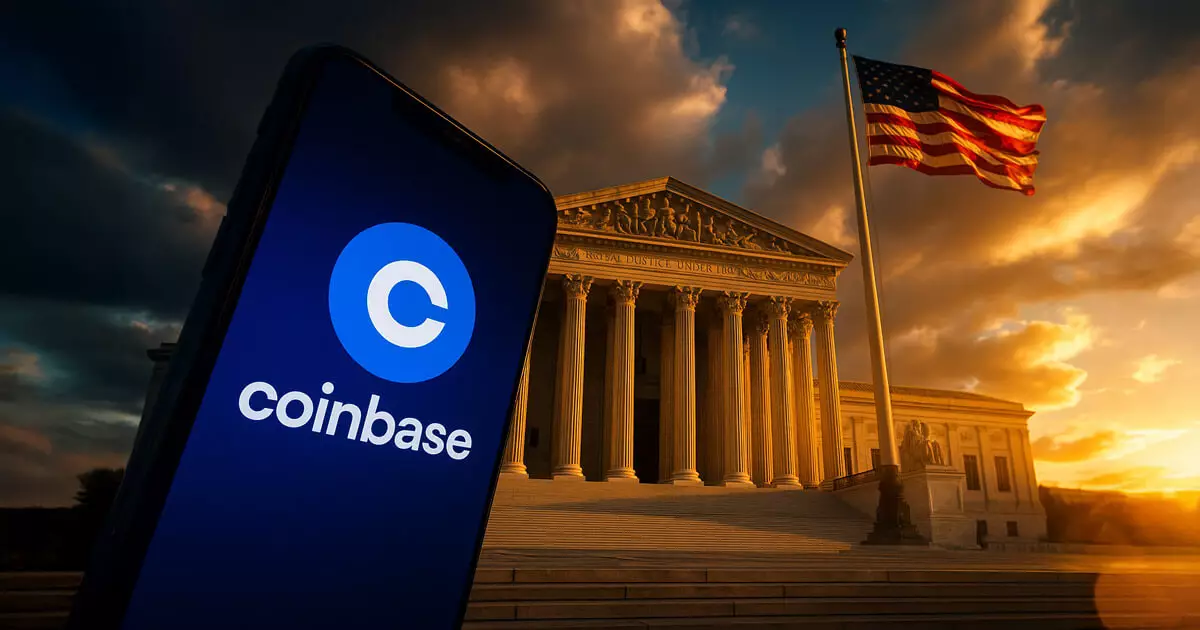The recent ruling by the Supreme Court not to review the case Harper v. Faulkender signifies more than just procedural finality; it represents a pivotal endorsement of governmental power over individual financial privacy in the digital age. By declining to hear the case, the Court effectively confirms the lower court’s stance that the IRS possesses expansive authority to subpoena user data from crypto exchanges like Coinbase without meeting traditional constitutional safeguards. This decision, or lack thereof, reveals an unsettling reality: in the eyes of the law, the privacy protections that once shielded personal financial information are rapidly eroding, especially when such data is stored with third parties.
This ruling underscores a broader shift towards governmental oversight that no longer respects the boundaries set by the Fourth Amendment. It signifies an acceptance of a “post-privacy” era where financial transactions, wallet holdings, and user behavior on centralized platforms are open espionage targets. The Court’s silence can be interpreted as tacit approval for the IRS and other agencies to wield broad investigative powers, effectively treating digital assets as tools for state surveillance rather than private property.
The Legal Foundations: The Third-Party Doctrine in a Digital World
The legal underpinning here is the “third-party doctrine,” a relic from the pre-digital era that states individuals relinquish certain privacy expectations when sharing information with third parties. Traditionally, this meant bank records, telephone usage, or similar data. However, in a world dominated by digital transactions, this doctrine appears increasingly outdated and unjustly expansive.
Crypto exchange users often believe their transactions are private, but by trusting centralized platforms like Coinbase, they concede the right to privacy. The court has reinforced this notion, affirming that once private data resides with a third-party service provider, the government can access it with fewer protections. This underscores a troubling twist: the digital footprints left on crypto exchanges are no longer private in any meaningful legal sense, and government agencies see them as open targets for enforcement.
For advocates of privacy, this ruling accentuates the urgent need to reassess constitutional protections in the context of ever-evolving technology. The swift legal acceptance of the third-party doctrine’s applicability to cryptocurrency indicates how quickly legal interpretations lag behind technological realities. It also signifies that efforts to develop privacy-preserving alternatives may not be enough; the dominant legal framework legitimizes invasive government access as standard.
The Impact on Crypto Users and Industry Trends
For individual crypto users, especially those concerned about privacy and financial sovereignty, the implications are profound. The decision essentially signals a permission slip for authorities to scrutinize transaction histories, balances, and account activities without demonstrating probable cause or obtaining warrants. This dynamic threatens to undermine the voluntary privacy protections that digital asset owners once assumed.
Consequently, savvy and privacy-conscious individuals may increasingly turn to self-custody wallets and decentralized exchanges to bypass the reach of government surveillance. These solutions allow users to retain control of their private keys, preserving a degree of financial independence and obscurity from prying eyes. The ruling accelerates a potential migration away from centralized exchanges, emphasizing the importance of personal responsibility and technical literacy in safeguarding financial privacy.
Meanwhile, the crypto industry faces a stark reality: regulatory compliance is becoming indistinguishable from surveillance. Authorities are treating digital assets as traditional financial accounts, subject to the same invasive oversight. This convergence risks stifling innovation and driving crypto activity underground, away from the regulatory framework that could legitimize and stabilize the industry’s growth.
Government Overreach vs. Privacy Rights: A Broader Policy Dilemma
This development reveals the central tension that underpins modern governance: balancing law enforcement needs with individual rights. While ensuring compliance and tax collection is undeniably important, the manner in which agencies like the IRS seek access to digital data raises fundamental questions about proportionality and rights in the digital realm.
The government’s aggressive push for access aligns with a broader trend of increasing surveillance capabilities, often justified by the necessity of maintaining order and revenue. However, this expansive authority comes at the expense of personal liberties. The Supreme Court’s inaction reflects an acceptance of these encroachments, implying that privacy rights are secondary in the face of governmental interests.
From a policy perspective, this scenario demands a careful reevaluation. The digital age demands updated legal standards that protect citizens from unwarranted searches while still permitting legitimate law enforcement. Allowing the IRS to routinely access crypto data without specific warrants risks normalizing warrantless searches, a dangerous precedent that threatens to turn the Fourth Amendment into a relic of the past.

